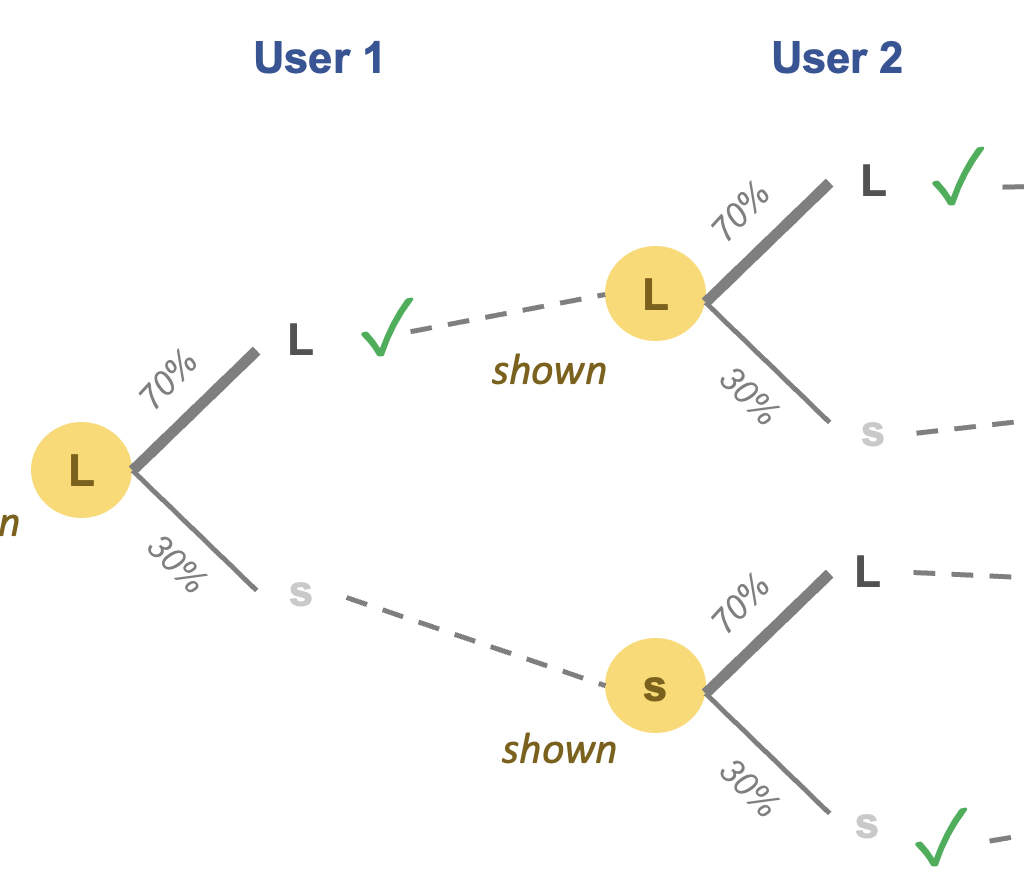Talking shop about probability
It strikes me that the media loves to talk about probability, a subject about which journalists are ill-trained to write. The latest example of this is Forbes' attempt to draw a lesson out of the Warren Buffett's gimmicky $1 billion NCAA pool. As we all learned, by the time the 25th match drew to a close, all 8.7 million entrants have gotten at least one winner wrong, thus there would be no payout. (There are 32 matches in the first round of the tournament.)
The author calls this "human folly, bots' wisdom." Specifically, he said "A simple, randomized computer program probably would have done a better job of sizing up the upsets than we did."
It's not clear what he meant by a "randomized computer program". I'd assume he means the computer that selects at random one of the 4.3 billion possible first-round brackets. If so, the computer's chance of getting the right one is also remote.
We all know friends who spent hours or days slicing and dicing data to fill out their brackets. Nate Silver posted his methodology here, for example. It's unclear how many of the 8.7 million entries were purely "human".
***
When the columnist moves to the numbers, confusion reigns:
If people had filled out their brackets totally randomly, it would have taken 2 to the 25th, or 34 million people, to cover every single possibility. So with 8.7 million entrants, a simple computer program (call it MoronBot) would have enjoyed about a 26% chance of coming up with at least one surviving contender.
If we take this at face value, then on average, three out of four years, there would be no one left after the first 25 matches, even if every entry is generated by MoronBot. So it isn't surprising that no one got past the first 25 this year in particular.
What is lost in the math is the fact that the entire setup is a gimmick. Buffett has already determined that the chance of payout is zero. And it doesn't matter whether humans or bots are entering the stakes. This is precisely why the entry fee to this pool is, well, zero. Ever heard of no free lunch?
***
What is driving the odds is the exponential multiplier. Let's re-do the Forbes calculation but considering all 32 teams in the first round. Now, there are 4.3 billion unique first-round brackets (up from 34 million)! Even if all 8.7 million entrants were distinct brackets, they would constitute only 0.2 percent of possible brackets. The odds have dropped over 100-fold just by observing seven more first-round matches. It would be hundreds of years before we expect to find one perfect first-round bracket.
Worse than that, if this hundreds-year event happened, 8.7 million people will share the $1 billion prize since they are all now part of Moronbot. Yes, that means each entrant gets $115, but it's paid in 40 annual installments. Well, that's $3 per year, before taxes.
My advice: just have fun picking your bracket, and focus on your office pool.
***
The columnist went on to praise Big Data and artificial intelligence. However, the only analysis provided in the piece relates to a Moronbot making random picks, which requires zero intelligence. This is followed by a handwaving argument saying if a computer achieved X by making random picks, then the same computer will do X+Y by using some more intelligent algorithm, where Y is a positive number. In the meantime, if a human uses his or her brain, then Y is a negative number. What is X? What is Y? and what are these algorithms? and how are these different from models created by the Nate Silvers of the world?



